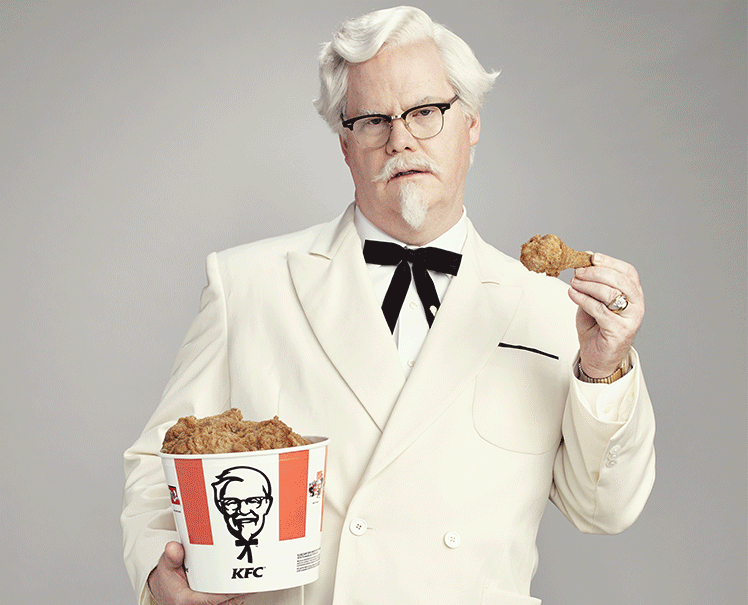The title “Colonel” associated with KFC is not a military rank conferred by a national army. It’s an honorific, a symbolic appellation bestowed upon Harland Sanders by the Governor of Kentucky in 1935. This seemingly simple gesture blossomed into a cornerstone of the brand’s identity, a potent symbol that transcended mere culinary endeavors. It embodies Southern hospitality, homespun wisdom, and an unwavering commitment to quality, all personified in the image of a white-suited, mustachioed patriarch. But what *does* this Colonel truly represent in the grand tapestry of KFC?
First and foremost, the Colonel is the *custodian of the recipe*. The eleven herbs and spices, that closely guarded alchemical formula, are inextricably linked to his persona. This secrecy, carefully cultivated and perpetuated through the decades, elevates the recipe beyond mere ingredients. It transforms it into a legendary artifact, a gastronomic Holy Grail protected by the Colonel’s legacy. The enduring appeal lies in its consistency. Regardless of location, a KFC chicken aims to deliver a flavor profile that echoes the original, a testament to the Colonel’s unwavering pursuit of perfection.
The Colonel also symbolizes *entrepreneurial grit*. Sanders’ journey was not one of immediate success. He faced setbacks, financial hardships, and ageism. He only franchised KFC at the age of 62, a period in life when many consider retirement. This late-stage triumph resonates with those who dare to dream beyond conventional timelines, who refuse to be defined by societal expectations. The Colonel, therefore, stands as an exemplar of perseverance, a reminder that success can be achieved through relentless determination, even against seemingly insurmountable odds. His white suit isn’t just a visual flourish; it’s a sartorial declaration of self-belief.
Beyond the practical aspects of recipe and business acumen, the Colonel acts as a *beacon of Southern charm*. He embodied a particular brand of hospitality, one characterized by warmth, genuineness, and a certain old-fashioned courtliness. This is reflected in the perceived, and often marketed, values of KFC: community, family, and a shared appreciation for simple pleasures. While modern fast food often emphasizes speed and efficiency, KFC, through its continued association with the Colonel, attempts to evoke a sense of nostalgia, a longing for simpler times when food was prepared with care and served with a smile. This Southern aesthetic, however romanticized, provides a crucial differentiator in a competitive market.
Furthermore, the Colonel is a *marketer’s dream*. His image is instantly recognizable, a shorthand for the entire KFC brand. The use of his likeness in advertising, packaging, and restaurant decor serves as a constant reinforcement of the brand’s core values. He transcends being merely a logo; he becomes a tangible representation of the company’s history, its aspirations, and its commitment to quality. The Colonel’s character has been re-imagined and re-interpreted countless times, proving his enduring value as a marketing icon. He is a malleable figure, capable of adapting to changing consumer tastes while retaining his fundamental appeal.
However, the Colonel’s legacy is not without its *paradoxes*. He is presented as a symbol of authenticity, yet his image is carefully curated and manufactured. KFC is a global corporation, far removed from the humble roadside restaurant where Sanders first perfected his recipe. The romanticized version of the Colonel can sometimes clash with the realities of the fast-food industry: standardization, mass production, and a focus on profitability. This tension between image and reality is inherent in the Colonel’s enduring appeal. He represents both the genuine spirit of culinary innovation and the carefully crafted narrative of a global brand.
In essence, the Colonel of KFC is a complex and multifaceted symbol. He is the embodiment of a recipe, an entrepreneur, a cultural icon, and a marketing tool. His enduring appeal lies in his ability to evoke a sense of nostalgia, a longing for simpler times, and a belief in the power of hard work and perseverance. While the realities of the fast-food industry may sometimes belie the romanticized image of the Colonel, his legacy continues to shape the KFC brand, providing it with a unique identity in a crowded marketplace. The Colonel is, at his core, a symbol of hope. That, if you believe in yourself and the quality of what you offer, you can achieve remarkable things, no matter your age or background.







Leave a Comment